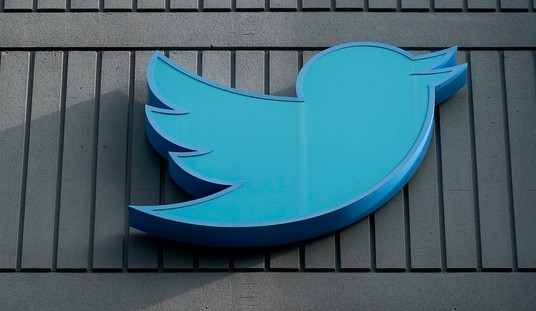The definition of “bipartisan” keeps getting more and more elastic. Joe Biden campaigned in part on returning to the heady days of a bipartisan yesteryear, pledging to work with Republicans to craft common-sense legislation. Just seven weeks into his presidency, however, the White House has already changed the definition of bipartisan from “we can get Republican votes” to “somewhere out there a Republican voter approves of this proposal.”
Politico reports that the Biden administration plans to use that definition on its upcoming infrastructure bill. The massive spending proposal comes on the heels of massive spending on COVID-19 relief and stimulus, some of which already went to various infrastructure projects. Adding more spending on top of the imaginary money just authorized by Congress won’t go anywhere with the GOP for several reasons:
1) Cost: Biden campaigned on a $2 trillion infrastructure-climate plan, but already there’s talk among Democrats about going as high as $4 trillion. The bigger the number, the harder it will be to garner GOP support — especially because Congress just spent $1.9 trillion.
Also: Only three House Republicans supported Democrats’ $1.5 trillion version of a similar proposal pairing transportation and climate last year, a bill then-Senate Majority Leader MITCH MCCONNELL called a “multithousand-page cousin of the Green New Deal masquerading as a highway bill.”
We’re told from a good House source that the same plan will probably be the “starting point” for the House’s infrastructure package this year — and then go higher from there.
2) Scope: With the Senate filibuster clogging up the rest of Democrats’ agenda, progressives see this as possibly their last chance to get something major through Congress. They’re talking about lowering the Medicare eligibility age or tucking in a health care public option (both are long shots). Other Democrats want to make the newly expanded child tax credit permanent (more likely), which Bloomberg reports would cost $1 trillion on its own.
The only way to pay for this new package, assuming they don’t just use the “money grows on trees” approach in the relief and stimulus bills over the past year, is to raise taxes. Biden wanted to pass higher taxes on corporations and the wealthy to fund this, but Republicans will point out — rightly — that they just got corporations and the wealthy to bring their capital back into the US. Hiking those taxes all over again will once again encourage people to move that wealth offshore and invest it elsewhere to avoid the higher taxes in the US.
The bottom line, Politico notes, will not be whether Biden can get 10 Senate Republicans to vote for his infrastructure package. Given what they’ve talked about wanting to do with the bill, how big they want it to be,” transportation beat reporter Sam Mintz says, “I think the question is going to be, ‘Can you get Joe Manchin to vote for it?’”
If Manchin voted against it, wouldn’t that make opposition to the bill bipartisan? Especially since Manchin has talked constantly about the need to focus on infrastructure? That was his preferred method of COVID-19 stimulus, after all; Manchin questioned the wisdom of another cash dump when previous tranches of cash remained unspent. He wanted those resources poured into large infrastructure projects to create some jobs in the short and medium term, allowing for a broader launch of economic revival post-pandemic.
As it turns out, though, Manchin’s not the only member of Chuck Schumer’s caucus that’s not sold on Biden’s bill:
Even as President Joe Biden and his allies in Congress begin laying the groundwork for an infrastructure package whose price tag could top the $1.9 trillion bill he’ll sign this week, multiple Democratic centrists on both sides of the Capitol are ready to pump the brakes. They want at least some of the next big bill to be paid for, arguing there has to be some limit to Congress’s deficit spending as the nation claws its way out of Covid’s grip.
“At some point we’ve got to start paying for things,” said Sen. Angus King (I-Maine), who caucuses with the Democrats and is worried higher interest rates could become an albatross on the economy. “It’s got to be paid for. It’s just a question of who pays. Are we going to pay or our kids going to pay?” …
“Some of it needs to be paid for,” said Sen. Jon Tester (D-Mont.), who suggested an “all of the above” strategy for paying for an infrastructure package that includes spending cuts and raising new revenues.
“You’re going to remind me of this [later] when none of it’s paid for,” he deadpanned, “but I do think some of it needs to be paid for.”
By golly, opposition to more imaginary money looks pretty bipartisan, doesn’t it? That’s not to say that King and Tester won’t eventually come along, but Congress has authorized six trillion dollars in relief and stimulus spending over the past 12 months without any attempt at all to pay for it. That amounts to almost a third of the annual American economy that has been spent by printing money without any rational basis — perhaps appropriate in wartime, but only if we plan on paying for it when peace arrives.
If we don’t start covering those bets, we’re inviting a massive amount of inflation. If we do start covering those bets, we will suck capital out of the economy at the moment that we need it for the recovery. King and Tester — and likely Manchin too — want a middle position in which we cover some of the additional spending and hope that economic growth will cover the rest, but that’s not realistic when we continue to borrow 40 cents on every dollar in the annual budget, even apart from stimulus, relief, and infrastructure spending.
The US is living beyond its means, and the gap keeps accelerating. Neither political party takes this seriously, but that doesn’t mean the problem doesn’t exist. It just means that both parties are so committed to short-term thinking that they can’t be bothered with the long-term economic health of the nation. Perhaps when voters start taking that seriously, the political parties will follow. For now, though, we at least have a bipartisan nod to reality, even if it is still only marginal.








